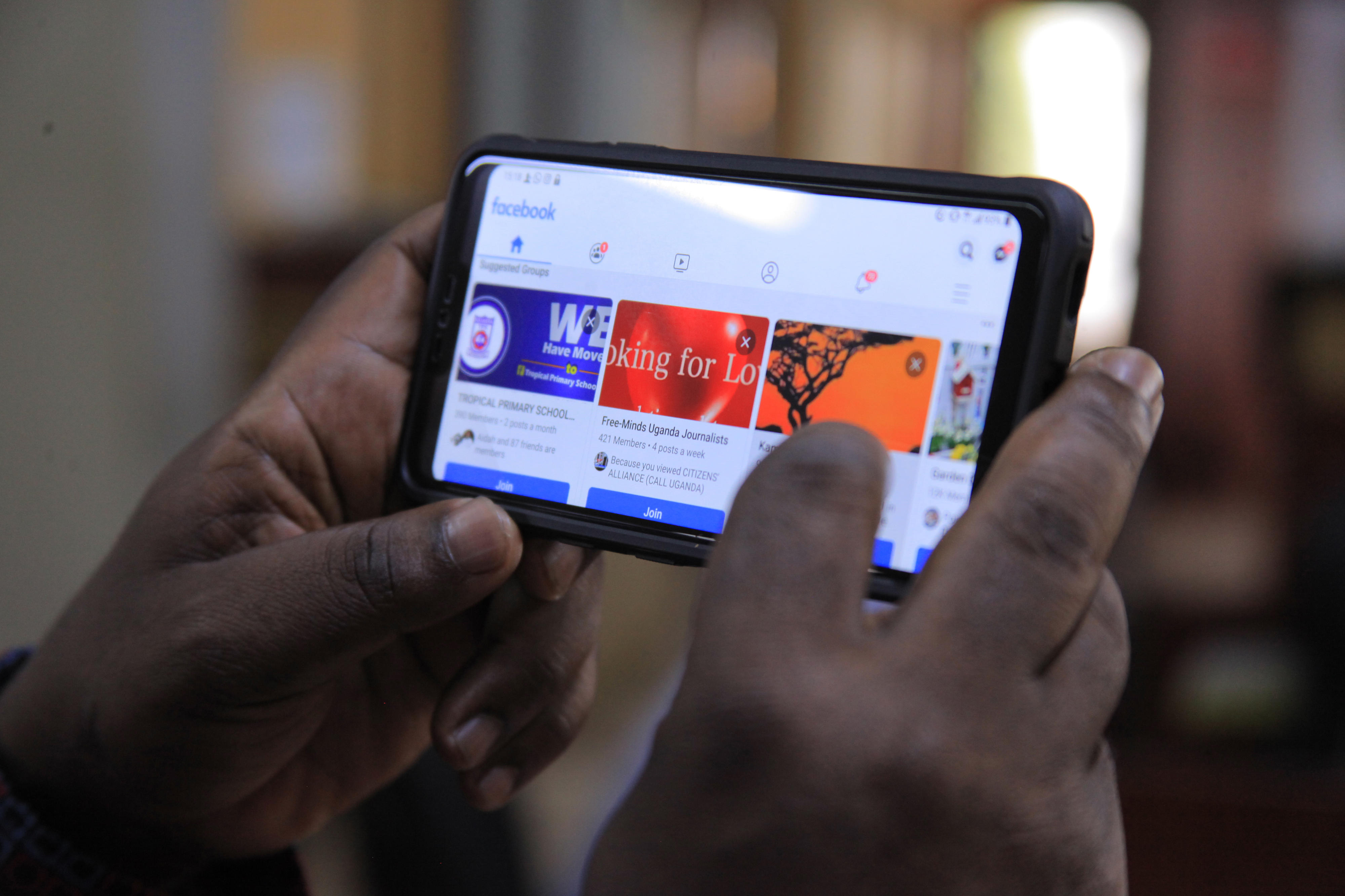Prime
Online marketing costs take toll on small businesses

A business uses online marketing to grow its customer base. Many brands have established social media as a communication and marketing tool in their business.
PHOTO/ Edgar R. Batte
What you need to know:
While some companies use digital platforms to increase their visibility, others are losing out due to what they term as high costs of online marketing.
Ms Grace Akatuha’s desire to make it in business is conspicuous in her words and actions.
Like many, if not most women entrepreneurs in Uganda, Ms Akatuha’s list of trials and error is quite long.
Her efforts to soldier on landed her on the virtual spaces, this time with a sole aim of marketing her nutritious products online. Ms Akatuha is a producer of Kikazi Original millet flour.
It didn’t take long before she came to terms with often time hidden harsh realities of online or digital marketing.
In her attempts to amplify the reach of her brand in the digital spaces, she realised she was spending much more than she reaps out of her investment.
“I decided to trade online, but very quickly realised that it was the same people from my known networks who are purchasing those items, leaving me wondering where the so called millions if not billions of people in these virtual spaces are,” Ms Akatuha narrated during the women in business convention on Friday.
“I was told I needed to boost my brands and that it will cost me Shs75,000,” she further told participants attending the event organised ahead of this year’s International Women’s Day by SEATINI Uganda in partnership with ActionAid International Uganda, Federation for Small and Medium-sized Enterprises, Institute for Social Transformation (IST) and the Eastern African Sub-Regional Support Initiative for the Advancement of Women (EASSI).
With the profit margin of just about Shs1,000, Ms Akatuha, noted that it made no sense to market digitally, considering that after all that effort and investment, only about 5 people per month would buy her items through online platform. This is not to mention storage and shipping (transport) charges that increase the cost of products that should otherwise be affordable.
On the other hand, the managing director at D&M Group International Limited, Ms Dorothy Kimuli, has a different experience. She expressed satisfaction with digital platforms, noting that it has boosted her marketing, urging the MSMES, to embrace it.
The story of these two women seems to speak directly to the theme of the event: Women Entrepreneurs’ Convening on Leveraging Digital platforms/solutions for the growth and competitiveness of women-led businesses.
This is because on one hand, the return on investment is not forthcoming, highlighting how far behind women business are in harnessing digital marketing and technology in general. On another hand, it looks like technology is what it will take to elevate women-led businesses to the desired level.
More scores to settle
According to the National Small Business Survey of Uganda, most Micro Small and Medium Enterprise (MSMEs) (about 63 per cent) do not have access to Internet.
Internet penetration is lowest among micro-sized businesses (at 31 per cent), half the proportion of medium-sized MSMEs who have access. The study further revealed that mobile money is used by 47 per cent of medium-sized businesses, 49 per cent of small and 57 per cent of micro-sized enterprises.
“Women play an important role in society as a whole and especially in small businesses yet, they often have less access to technology and the internet said SEATINI executive director, Ms Jane Nalunga in an interview last week.
She continued: “Without access to technology and digital solutions, women entrepreneurs are not able to tap into the benefits of digitisation and to expand their market base or embrace the numerous opportunities presented by the digital age.”
Recognising the benefits of digitisation and the digital gender divide, this year’s International Women’s Day which is celebrated annually on March 8th 2023 will be held under the theme “DigitALL: Innovation and Technology for Gender Equality.’’
The theme for this year’s International women’s day is aligned with the priority theme for the upcoming 67th Session of the Commission on the Status of Women (CSW-67), “Innovation and technological change, and education in the digital age for achieving gender equality and the empowerment of all women and girls.”

Solutions
In his remarks, the Jumia chief executive officer, Mr Vinod Goel, said: “I agree that shipping costs are high. But we also absorb so much to make it easy for the customer. However, we shall within the next two weeks see how we can bring the shipping cost further down.”
Addressing the issues of charges pertaining to boosting brands’ visibility online, he said Jumia which is a Pan-African technology company that is built around a marketplace, logistics service and payment service, can only do so much, arguing that the decision to buy a product in an online market place is based on various things including the quality and price of the product vis-à-vis others.
To fully benefit from the e-commerce, Financing for Development programme officer at SEATINI, Ms Grace Namugambe urged the government and industry players such as Jumia to intensify sensitisation, targeting women in business.
This according to the acting executive director of Uganda Chamber of Commerce for Small and Medium Enterprises, Ms Beatrice Alyanata, can easily and affordably be done through membership associations where women entrepreneurs can be quickly mobilised and trained.





